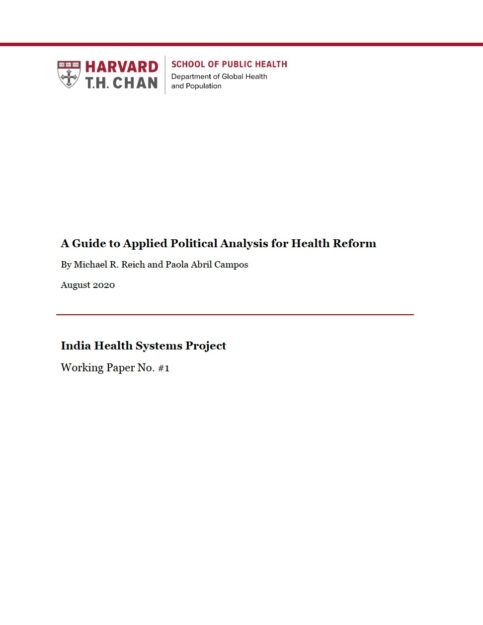A Guide to Applied Political Analysis for Health Reform
By Michael R. Reich and Paola Abril Campos
August 2020
Creating health system change requires a combination of technical solutions and political skill. Understanding the political context of health policies is crucial to improving the chances of effectively designing, adopting, and implementing health reforms that can achieve their intended objectives.
This guide seeks to help reformers navigate the political processes involved in changing and implementing health policies that will improve societal health and well-being. Policy reform is a profoundly political process, and advocates need to manage the politics of change, through careful political analysis and innovative political strategies. It is important to note that this guide is aimed to assist in applied political analysis—not in advancing theory, but in supporting practitioners. We seek to provide guidance that will help in the art of policy reform, through step-by-step suggestions for analysis. (See Appendix 1 for a glossary of some terms used in this guide.)
Various forms of applied political analysis exist. This particular form is a core component of the Flagship Approach to Health Reform that has been developed since the mid-1990s by a team of researchers at Harvard University in collaboration with the World Bank and other institutions. This guide can be used in conjunction with the Flagship Approach, but it is also designed to be used independently, to provide policy makers and policy analysts with instructions on how to manage the political processes of reform. The guide helps identify political, fiscal and institutional constraints that need to be addressed by political strategies that can improve the adoption and implementation of health reform.
With an Introductory Message from Arti Ahuja, Additional Secretary Ministry of Health and Family Welfare, Government of India.
Download the current version of the Guide here.
